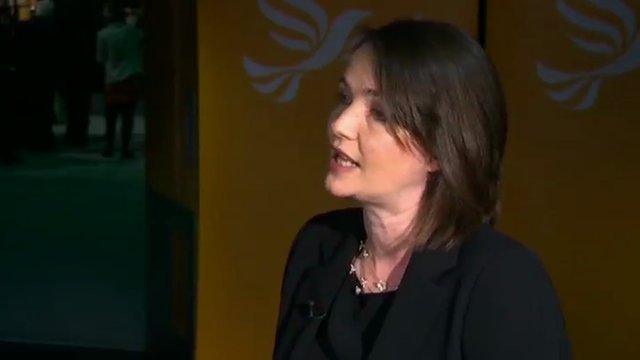Pledge to cut basic and higher rate income tax by Tories
- Published
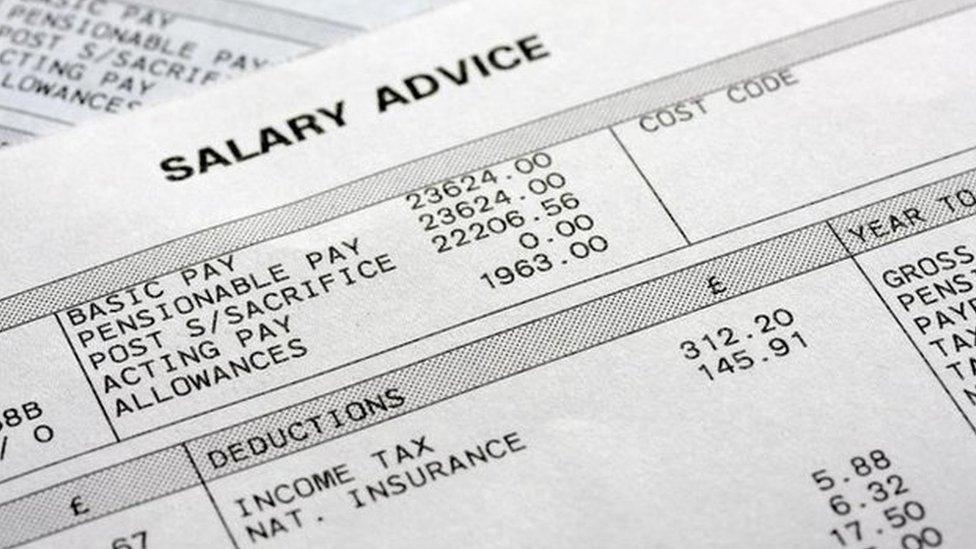
Welsh Tory leader Andrew RT Davies has said he wants to use new income tax powers to take 5p off the higher rate and 1p off the basic rate in Wales.
He said cutting the higher rate from 40% to 35% to attract entrepreneurs would cost £75m a year, saving those earning £50,000 about £400.
Cutting the basic rate to 19% would cost £180m a year, and save someone earning £25,000 around £70 a year.
Welsh Labour said tax cuts would not boost business by themselves.
On Wednesday, Chancellor George Osborne said control of some of the income tax levied in Wales can now be devolved without a referendum.
'Frightened'
The sharing of tax powers between ministers in Cardiff and London would mean the Welsh government controlling £3bn of taxes a year by 2020.
But Mr Davies told BBC Wales Welsh Labour ministers would be "frightened" of power over income tax as they "wouldn't know what to do with it".
First Minister Carwyn Jones has said the devolution of some power over income tax was right "in principle" but his government needed more details on the plans and timescale involved.
Mr Davies's tax plan would save those earning £50,000 about £400 per year
Mr Davies said the new income tax powers were an "historic change" that would ensure the Welsh government was "finally accountable to the people it serves".
"Not only do I want to see a change to the higher rate of tax - to stimulate job creation and boost economic growth in Wales - it's also crucial to look at changing the basic rate, guaranteeing additional money for even more workers," he said.
"It's time to utilise the powers that can make a real difference to Welsh families and Welsh businesses and - while Labour sweeps these possibilities under the carpet - we are already working hard to ensure lower tax and higher take-home pay."
Responding for Labour, Torfaen AM Lynne Neagle dismissed the thinking behind cutting the higher rate of income tax.
"On its own this proposal will do nothing to help entrepreneurs in Wales looking to start a new business," she said.
"If the Tories were serious about helping start-ups then rather than cutting income tax for Wales' highest earners they would join our calls on David Cameron and George Osborne to honour their promises on infrastructure investment and electrification."
Plaid Cymru finance spokesman Alun Ffred Jones said his party's tax plans "would depend on when income tax is expected to be partially devolved".
But he added: "Plaid Cymru looks forward to a new era for Welsh politics where a combination of different tax levers can be used innovatively, and we are encouraged that finally the government has yielded to Plaid Cymru demands."
In 2013, Welsh Liberal Democrat leader Kirsty Williams said she wanted to lower the basic rate of tax from 20p to 18p, if Wales gained tax varying powers.

Analysis by Nick Servini, BBC Wales political editor
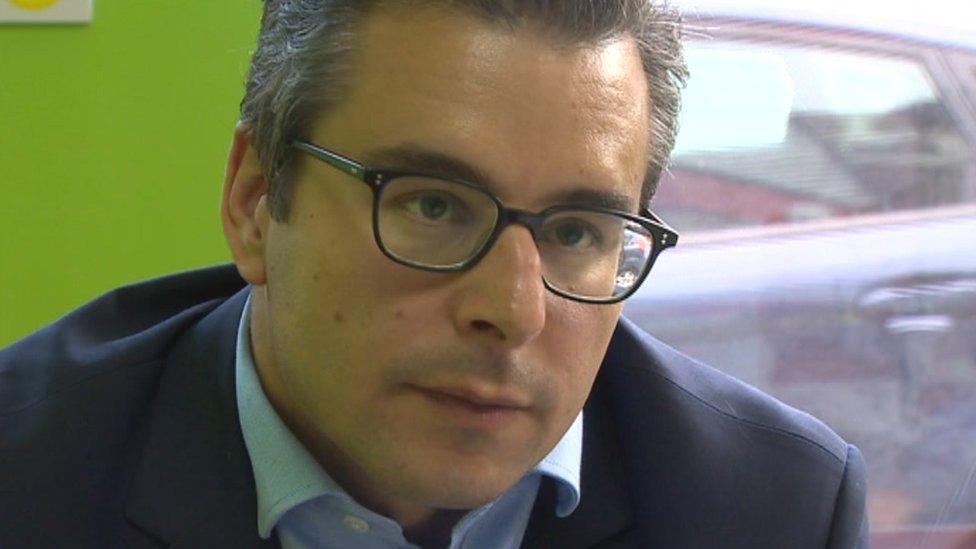
The Conservatives have come out of the blocks first saying that not only would they like to take five pence off the higher rate, but a penny off the basic rate as well.
And when it comes to the inevitable question of where they would find £200m to cover the lost revenue, they point to policies such as abolishing free prescriptions and tuition fees.
Whatever the merits of these policies, the point is that it changes the dynamic of assembly politics in that for the first time a party can go into an assembly election with a pledge to put money in people's pockets.
In the meantime there is still deep suspicion among Labour ranks.
The Pontypridd MP and shadow work and pensions secretary Owen Smith is keen to remind everyone of the brutal reality of public spending in Wales: the tax take is £16bn while public spending is £32bn, in other words it is dangerous for Wales to separate itself from the other wealthier parts of the UK when it comes to major sources of revenue like income tax.
Officially the Welsh government is saying it has no problem in principle but it wants to see more details of the guarantees from Westminster to protect spending.
Labour at the assembly has always been lukewarm to the idea of devolving income tax as they cannot see in what circumstances the powers would be used, put the rate up and high earners may leave while a reduction would leave the Welsh government coffers short.
The Conservatives say a degree of accountability will mean AMs have a stake in the growth of the economy and as a result lead to better policies.

On Wednesday, Mr Osborne also promised spending per head on devolved services in Wales would not fall below 115% of spending per head in England.
Welsh ministers said their budget would fall in real terms and they needed more details on that minimum funding pledge.
- Published25 November 2015

- Published25 November 2015
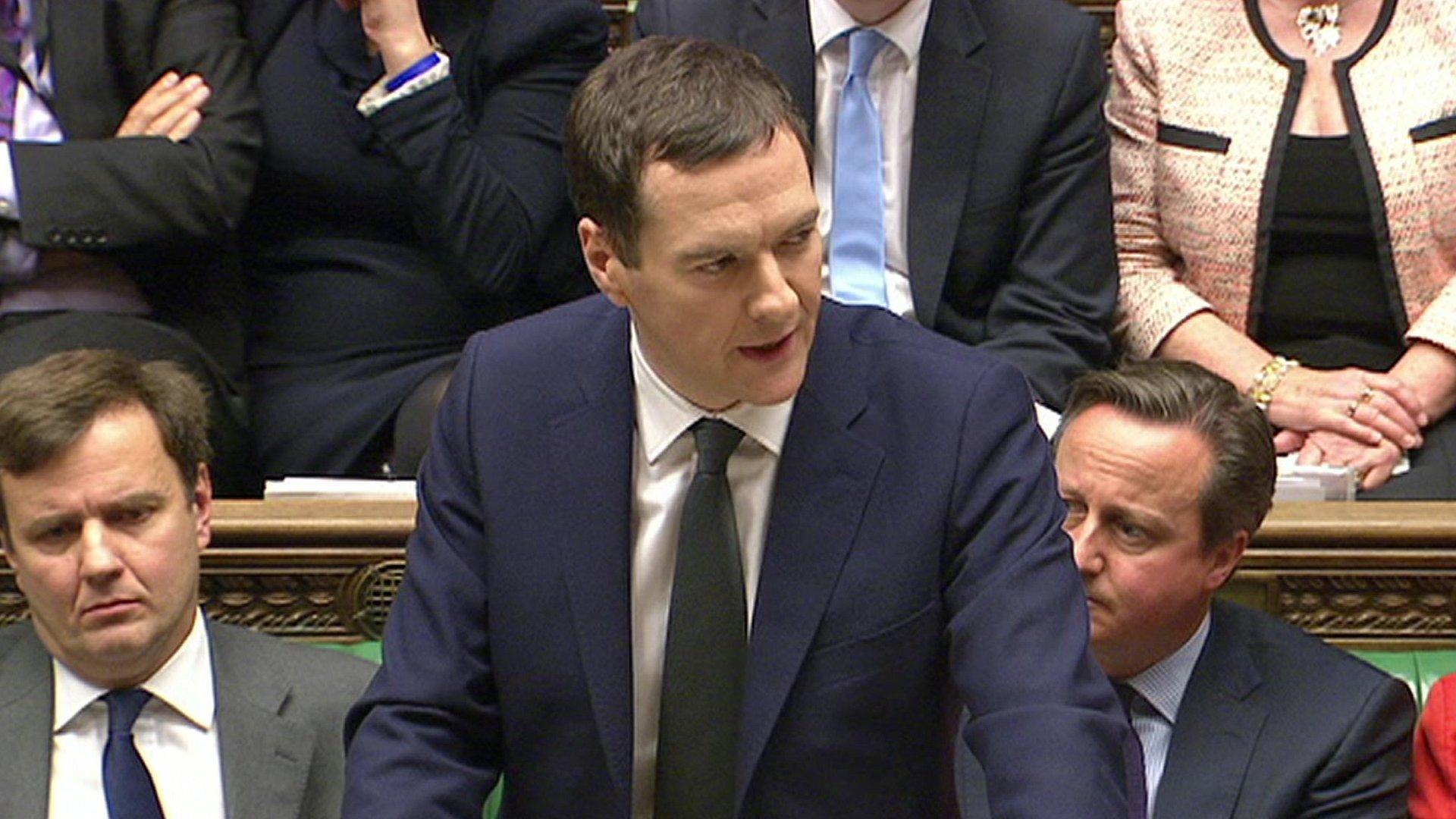
- Published25 November 2015
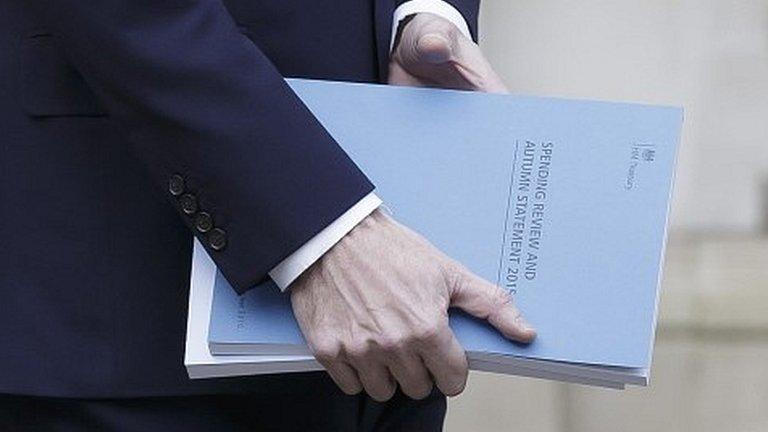
- Published26 November 2015
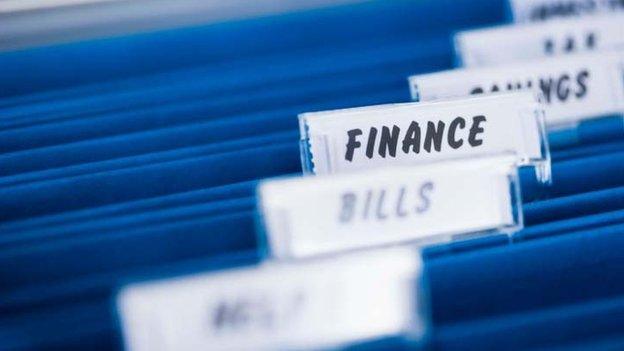
- Published17 January 2013
